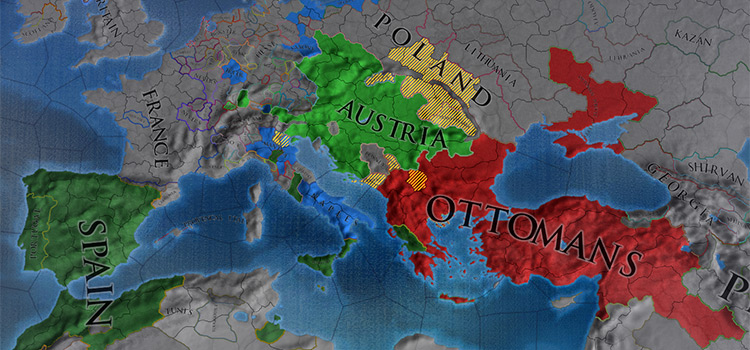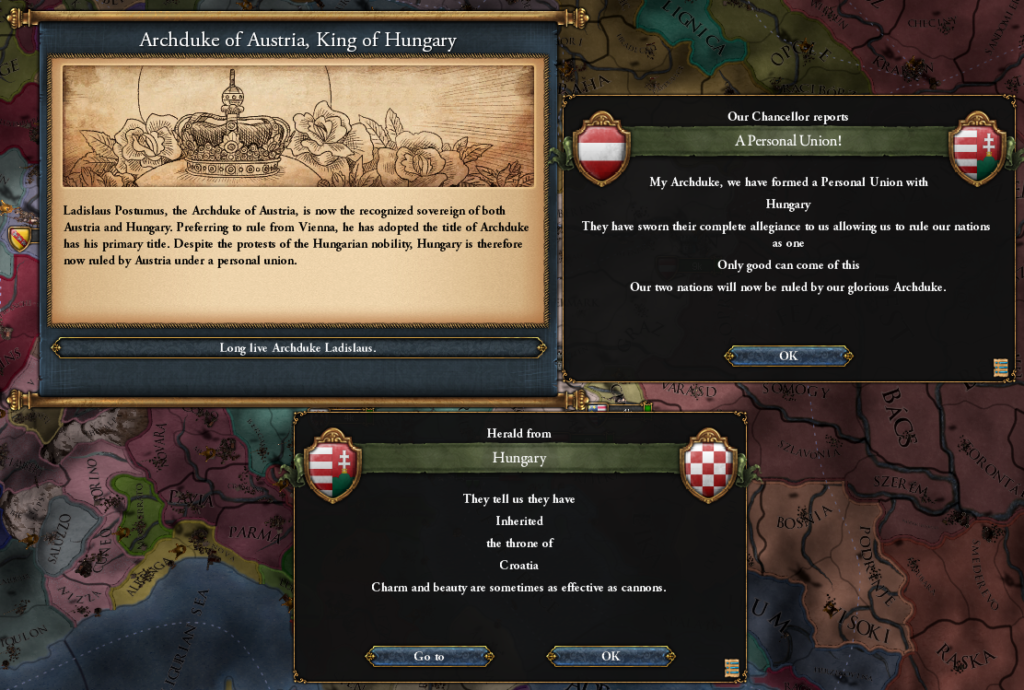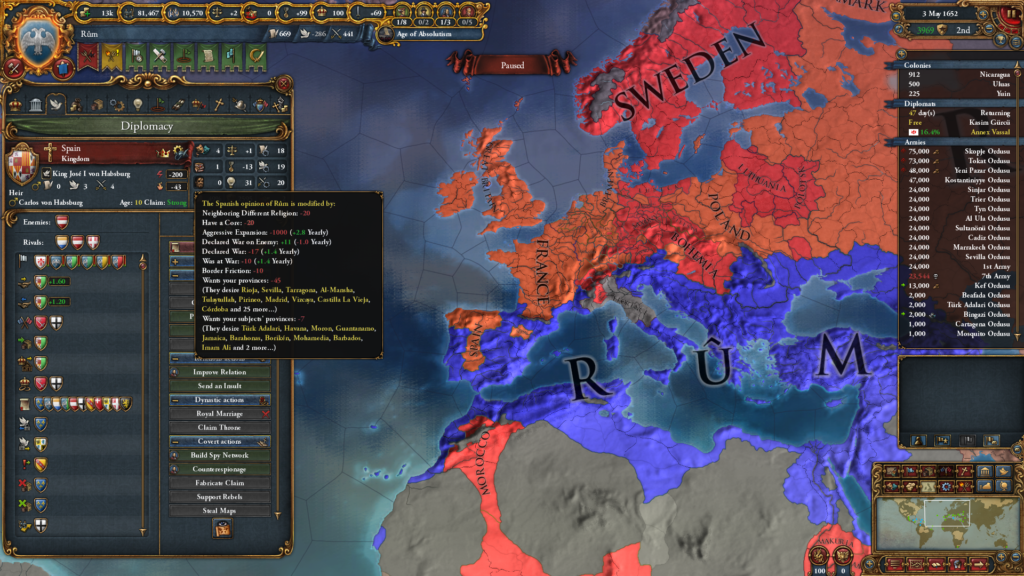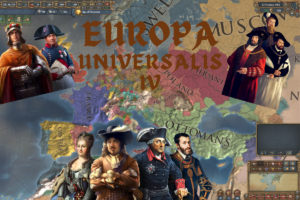The Art of Diplomacy in Europa Universalis 4: The Diplomatic Guide
Europa Universalis 4 (EU4), a grand strategy game developed by Paradox Interactive, is an intricate simulation of historical events, where military might, economic strategies, and diplomatic relations intertwine to shape the course of history. Among these facets, diplomacy stands out as a critical tool in the player’s arsenal, often determining the difference between a thriving empire and a footnote in the annals of history. This article delves into the importance of diplomacy in EU4 and offers strategies to optimize diplomatic relations, ensuring your nation’s prosperity and dominance on the world stage.
Understanding the Role of Diplomacy in EU4
In EU4, diplomacy is the art of managing relationships between nations, encompassing alliances, rivalries, marriages, and coalitions. It’s a complex system that mirrors the multifaceted nature of international relations. Diplomacy in EU4 isn’t just a side activity; it’s a vital aspect of gameplay that can lead to peaceful expansions, access to critical resources, and, most importantly, avoidance of potentially devastating conflicts.
1. Building Strategic Alliances
Alliances are the backbone of effective diplomacy in EU4. Aligning with other nations can deter potential aggressors, provide military support in wars, and stabilize your position in a volatile world. However, choosing allies requires careful consideration of their military strength, strategic interests, and potential conflicts with other nations.
Strategy Tip: Prioritize alliances with nations that complement your strategic goals. For instance, if you aim to expand into a particular region, seek allies that share your rivalries or have interests aligned with yours. This synergy can amplify your diplomatic and military efforts. The AI in EU4 sets strategic interests on provinces it wishes to conquer. An ideal alliance sees nations splitting territory from a mutual rival. You can use this to your advantage, especially as a small nation by promising your larger more powerful ally land in the war. Use your powerful ally to win the war, expanding your nation while limiting the expansion of an already powerful one. Be careful to ensure you are granting your ally enough land otherwise they may break the alliance.

2. Managing Rivalries and Threat Perception
Rivalries in EU4 are not just personal vendettas; they are strategic tools to consolidate power and secure your borders. Declaring a nation as a rival can grant bonuses, such as increased prestige and the ability to increase your power projection, but it also increases the risk of conflict. You must declare 3 rivals in the game. As you become more powerful you will outgrow your current rivals and must declare new (more powerful ones). The game constantly checks power levels between nations and informs you when your current rival is no longer valid. A tooltip appears when you have an empty rival slot that can be filled.
Strategy Tip: Choose your rivals wisely, focusing on nations that pose a direct threat to your interests or block your expansion paths. It is most optimal to choose rivals you plan on attacking within the next 20 years. Rivals are easier to spy/fabricate claims on, aggressive actions towards your rivals grant power projection, and your rivals make securing alliances with your rivals enemies easier.

3. The Power of Marriage and Personal Unions
Royal marriages are a unique diplomatic tool that can lead to personal unions or even claims on foreign thrones. This aspect of diplomacy is particularly useful for monarchies looking to expand their influence without resorting to war. This is only possible for Christian nations. All other religions can secure royal marriages but they will not lead to personal unions and you can never use the claim throne action.
Strategy Tip: Target nations with unstable successions or without heirs for royal marriages. This can open avenues for personal unions or claims, allowing for peaceful expansion. However, be mindful of the diplomatic repercussions and the potential for entanglement in your partner’s conflicts.
4. Navigating Coalitions and the Balance of Power
Coalitions in EU4 form in response to aggressive expansion, posing a significant threat to overambitious empires. A coalition war can be devastating, often setting back years of progress. Aggressive expansion (AE) occurs whenever you conquer provinces, subjugate another nation, or pillage another nations capital. The amount of AE you incur depends on number of factors.
AE factors from the EU4 Wiki:
- Religion modifier is based on the state religion of the target country compared to the state religion of the loser. It is 50% if they are the same, 0% if they are different, but in the same religious group and -50% if they are in different religious groups
- Infidel conquest modifier is 50% if the target country has the same state religion as the loser country and the state religion of the aggressor country is in a different religious group
- Culture modifier is 50% if the primary culture of the target country is the same as the culture of the province, 25% for different culture in the same culture group, 0% for unrelated culture
- HRE modifier is 50% if the conquered province and the target country are part of the HRE
- Distance is the ingame distance between the conquered province and the nearest province of the target country. This value is rounded down to the nearest multiple of 100 and capped at 400.
- Ally modifier is 2/3 if the target nation is allied to the aggressor and 1 otherwise
- Subject modifier is 10% if the target nation is a subject of the aggressor and 100% otherwise
It’s a complex calculation and for the sake of simplicity remember that nations closest to your conquest, sharing the same culture and sharing the same religion will be most impacted. The further away and less other nations have in common with the conquered nation the less they care about your aggression.
Strategy Tip: Monitor the aggressive expansion impact closely when conquering new territories. Spread out your conquests and improve relations with potential coalition members to dissuade them from joining against you. Some diplomatic idea sets and advisors can also reduce aggressive expansion impact or reduce the rate aggressive expansion decays.

Don’t let this happen to you!
5. Utilizing Diplomatic Actions and Espionage
Diplomatic actions, such as issuing embargoes, supporting rebels, or stealing maps, can subtly undermine your rivals or prepare the ground for future conquests. Espionage, in particular, can provide a significant advantage by giving insights into enemy plans and weakening their internal stability. The espionage idea set and espionage in general is often overlooked by the EU4 community. Though it’s undervalued it can be very powerful when used correctly especially against rivals.
Strategy Tip: Tailor your use of diplomatic actions and espionage to your overall strategy. Supporting rebels in a rival’s key provinces can distract them during crucial moments, while stealing technology can give you a critical edge in military or naval power.
Conclusion: The Delicate Dance of Diplomacy
Diplomacy in Europa Universalis 4 is a multifaceted and dynamic system that requires attention, strategic thinking, and a keen understanding of the geopolitical landscape. By forging alliances, managing rivalries, leveraging marriages, and strategically deploying espionage, players can navigate the complex web of international relations to their advantage. Remember, in the grand chessboard of EU4, diplomacy often precedes victory, and mastering it is essential for any aspiring global power. Embrace the art of diplomacy, and watch as your empire flourishes under the banner of peace, prosperity, and strategic alliances.



